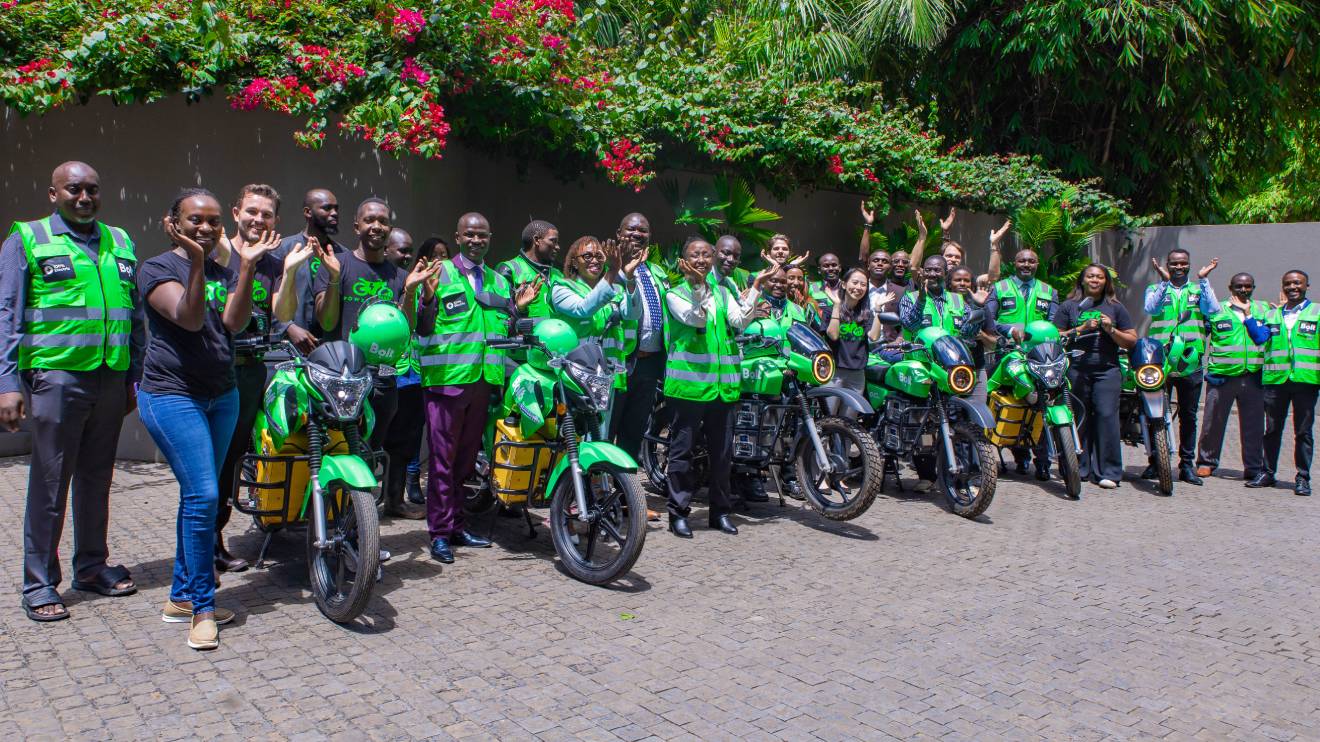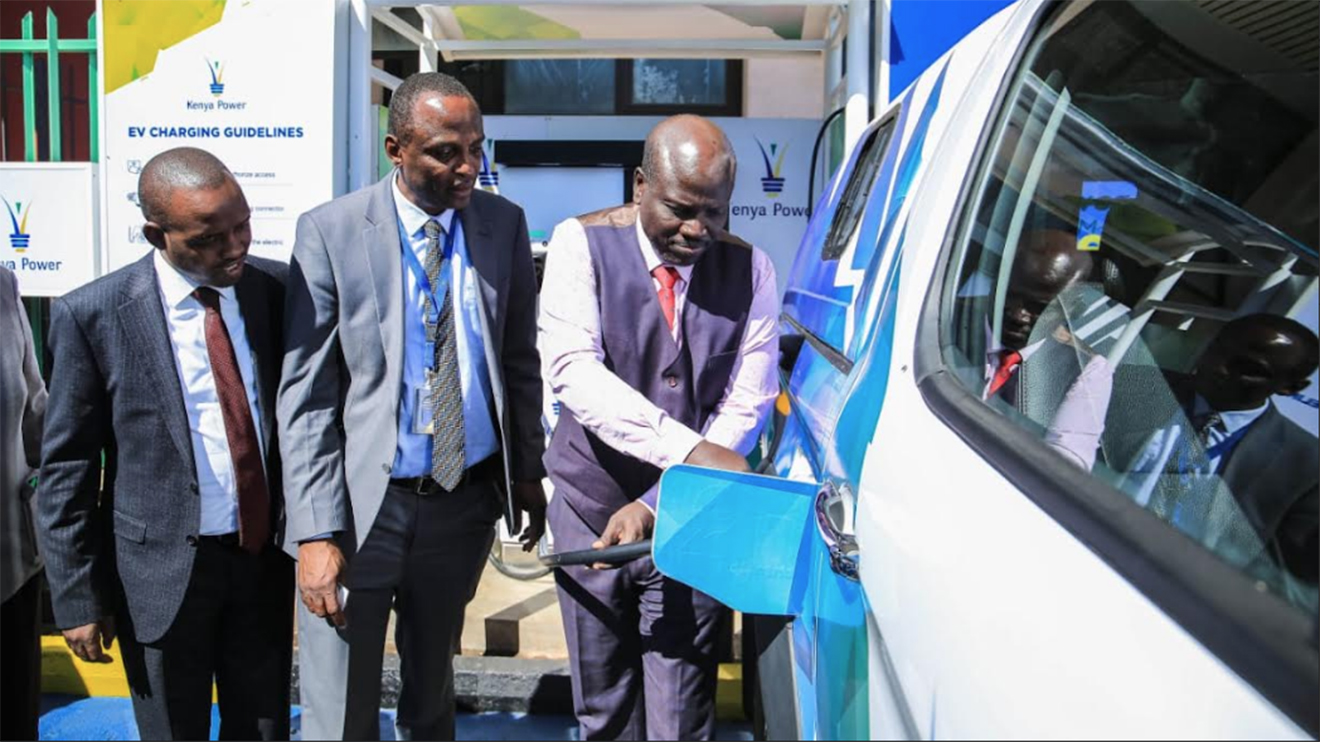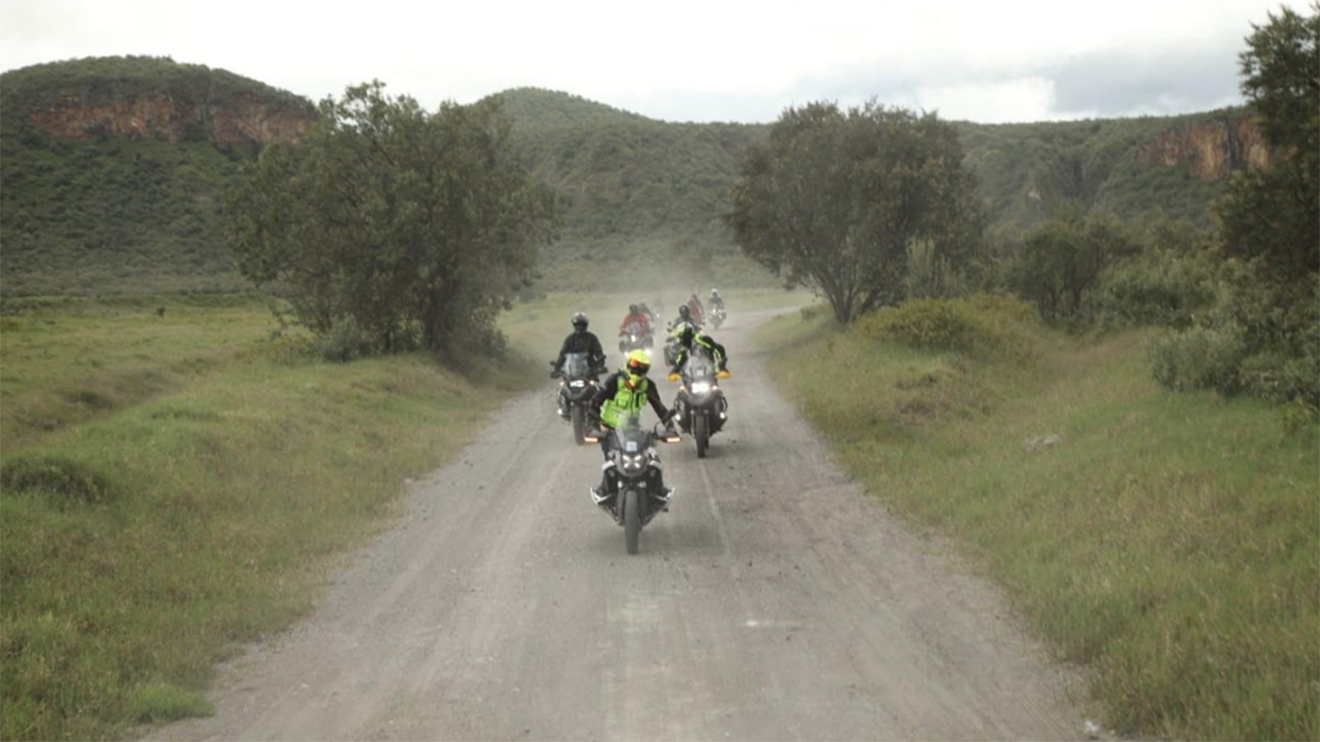Ngele Ali is an award-winning media, communications for development and advocacy expert boasting of more than 20 years of regional and international experience.
She is the current Head of Communications at the United Nations Development Programme (UNDP), Kenya office and has had an illustrious career from her humble beginnings in her rural home town of Taita.
Ngele has led various design and executions of communication strategies and advocacy campaigns focused on developing and humanitarian-related work over the recent years.
In her line of work, she has collaborated with donors, civil society, private sector and other key stakeholders and served on location or remotely in 14 countries in Africa, including Kenya, Uganda, Tanzania, Rwanda, Nigeria, South Africa, Ghana, Botswana and Malawi.
He specialty is designing and implementing media, communication and advocacy strategies that encourage diversity and community voices and she considers herself a good storyteller.
Read More
The meticulous communication launched her professional career in the year 2000 at the now defunct Ayton Young and Rubicam (AY&R), where she worked as an Art director.
“For the four years of my service, I had an excellent opportunity to work on several advertising and marketing campaigns for household brands across East Africa.”
She says AY&R changed her approach to every task and shaped her work ethics.
“As a visualiser in the year 2000, working with no computer but art paper and coloured pencils all day long, visualising ideas assigned to me, taught me a valuable lesson on trusting the process and valuing my input in any given task.”
She was promoted to Junior Art director within three months and by 2004, when she left the firm, she was a fully-fledged Art Director.
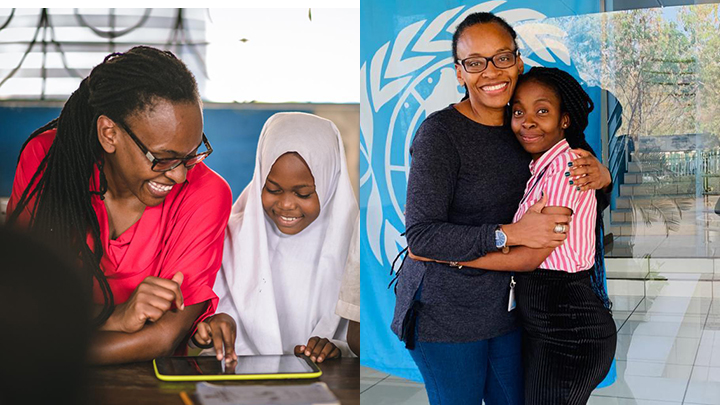
Ngele then joined Pact, transitioning from a profit-making to a non-profit sector.
“I joined Pact in 2004, and that is where my understanding and love for communities truly expanded. You can say I was now in tune with my purpose here on earth.”
At Pact, she was a Communications and Graphics Specialist 2004 – 2012 and worked in several countries in East, West and South Africa in diverse environments and programmes.
She says some of her most memorable and impactful assignments included supporting a team working under the WORTH programme.
“I supported the production and packaging of content that build basic literacy, numeracy, and enterprise-development skills of rural women across East Africa. It was an eye-opening experience to see how simple math and reading capabilities significantly turned around women's fortunes, improving their chances of getting out of poverty.
“When South Sudan was transitioning into an independent state, I worked with colleagues to package information in a manner that was accessible to communities to improve the understanding of the Comprehensive Peace Agreement (CPA).”
Through her work, they ensured communities in remote areas had the chance to engage with the proposals that were mainly taking place far away from home - in Naivasha Kenya, and they translated the CPA simplified document into local languages for easier reading.
“We recorded the peace agreement readings in all the dialects spoken in South Sudan packaging them for dissemination via radio cassettes, which local leaders played at community meetings. I guess this is what we have now as the modernised Audible books!”
She worked with teams in Malawi, Zambia and Tanzania among others to package information that enhanced visibility of the work the teams in those nations were doing.
“My travel across Malawi in 2009, documenting our work gave me a deeper perspective on the impact of HIV/AIDS. I came face to face with how HIV had ravaged communities. Still, it is the determination not to remain beaten down that has stuck with me since – human beings are resilient despite the challenging circumstances they find themselves in.”
In 2012, borrowing lessons from the 2007 post-election violence in Kenya, his team theorized a programmatic campaign "SAFE-Coast" funded by USAID seeking to increase youth participation in electoral processes and tame violence in Kenya’s coastal region.
In 2012, Ngele joined Oxfam as the Regional Information and Communications officer where she provided advisory and on-site technical support to 10 countries; Kenya, Uganda, Tanzania, Somalia, South Sudan, Sudan, Ethiopia, DRC, Rwanda and Burundi.
“I led story gathering missions documenting humanitarian and development stories as part of public awareness and resource mobilisation. I lobbied for a yearly allocation of funds by country offices for communications teams to train and equip country office communication officers.”
She also worked on several advocacy campaigns that created awareness of key decision-makers and lobbied for improved implementation of relevant policies.
“For example, I curated an exhibition ‘Make Peace Happen’ at the 2013 AU Summit in collaboration with the Oxfam Liaison team in Addis Ababa, where we brought to life the impact of a conflict that was ongoing in Mali and the DRC.”
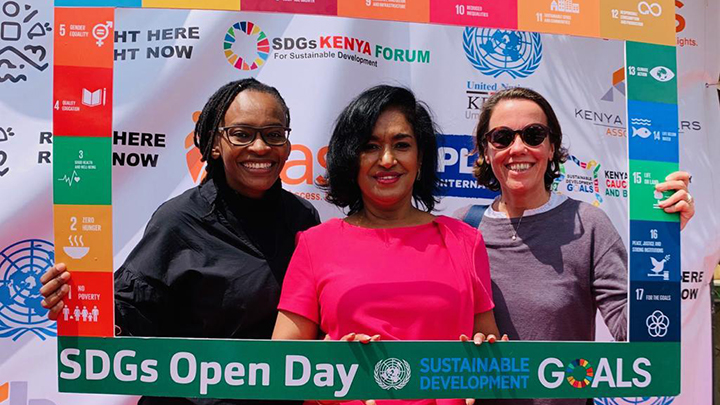
In 2014, she initiated and produced the inaugural Oxfam annual report for the Horn East and Central Africa (HECA) region.
It was the first of its kind to be published by any Oxfam regional office, setting standards for best practices of how joint reporting and showcasing results as one congeals partnerships.
In 2016, before leaving Oxfam for UNDP, she worked as the International Communications Advisor, working closely with Oxfam GB's International Division Directorate focusing on internal communications for international programmes, enhancing programmatic synergies as well as promoting learning and knowledge management.
“I was the first person to be recruited for this role outside of the UK, and this allowed me to bring the programmatic perspective which I believe was valuable for the position and the team I was working with.
“I telecommuted for most of my assignment from Nairobi, with occasional on-site work in Oxford when necessary - I proved that it is possible to work and be productive without physically being at the office.”
She was the media liaison at the World Economic Forum (WEF) in 2016 and coordinated media engagements and appearances for Oxfam International Director Winnie Byanyima.
In December 2016, she joined UNDP as the Head of Communications, Kenya office ahead of the 2017 General Election and provided strategic technical and advisory support to key poll implementing partners via UNDP Support to Electoral Processes in Kenya (SEPK) Project.
One of her key mandates to curate the Mass Voter Registration drive targeting young and first-time voters through comedy in local context and included working with Churchill live.
During the first International Sustainable Blue Economy Summit in Nairobi in 2018, she curated an outdoor exhibition with more than 100 giant prints and 30 international films.
In 2018, she led a team of colleagues and three Kenyan professional photographers to document and tell stories of development based on Sustainable Development Goals.
The images are part of UNDP photobank to illustrate UNDP's input in Kenya's development and one of her biggest wins from 2019 to 2020 was public mobilisation and engagement during a tour of duty in Nigeria.
When Covid-19 struck in early 2020, she led UNDP Nigeria’s production of key messages working with 27 influential people including Banky W, Ali Baba, Timi Dakolo, Dr. Ola Orekurin Brown, Patoranking and Basket Mouth to amplify government’s remedial efforts.
The efforts managed to reach more than 90 million Nigerians on TV and radio and more than 50 million on social media platforms in a span of two months.
She also represented UNDP on the Public Engagement and Risk Communication Committee of the Nigeria Presidential Task Force on Covid-19 working closely with the Nigeria office.
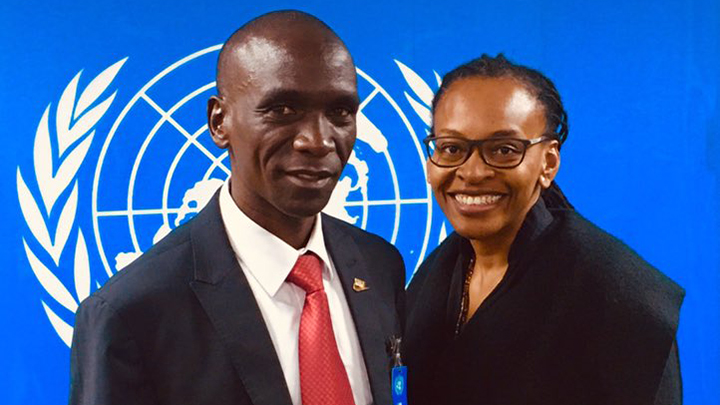
She managed to attract new private sector donors including Aliko Dangote Foundation, Maersk among others who contributed towards Nigeria’s Covid-19 Basket Fund.
She was recently involved in the launch, deployment and naming of the Anti-epidemic Robots in Nairobi and contributed to the team's efforts to deploy technology and innovation to minimise the risk of secondary infection for Kenya’s healthcare and frontline workers.
So, what has it been like for her in Senior Management in an international organisation?
“Being a woman at the decision-making table is not just for me; it is a representation of my communications team, which has coincidentally been 90% female over the years. It gives me a chance to represent seldom-heard voices at the table where ideas and decisions on how we communicate are made, allowing our thoughts to be heard and implemented, with remarkable results to show.
“While this is an outstanding achievement, it does not come easy – mainly where communication is considered an afterthought and not factored in during budgeting.”
She adds that as communicators, especially women, one has to continually work harder to demonstrate that their ideas and capabilities can deliver results.
“This is where we must bring our A-game to the table - we have to go beyond the scope of our terms of reference, be ahead of the curve with innovative ideas that speak for us and to be of added value to those who are likely to make decisions on the ideas we present.”
Ngele challenges women to constantly refresh their thinking and outlook to remain relevant.
“We have to see the biggest picture possible – this comes with the great responsibility of leading and influencing others. We have to be willing to move out of our comfort zones and be ready to fail…try and try again till what we do becomes second to nature.”
When asked about what her guiding principles have been in her career path, she said:
“Invested: In everything I do, it’s either I'm jumping in with both my feet in, or not. There are no grey areas when it comes to how I approach my tasks. I'm fully invested in what I do at a personal level and what my team does. I do not do anything simply to tick a box.”
“Empathy: I’ve learned to engage with my team beyond who they are as the person they bring to work. It gives me a better perspective of who I’m dealing with and when things are falling apart, it’s easier to remedy. I'm one manager who doesn’t leave my people trudging alone on assignments. While I won't micromanage, I like my team to know I’ll be there till it's done. Empathy is the cornerstone of building trust and long-lasting relationships.”
The top three lessons she has learnt in her illustrious career are being authentic, being her own competition, and looking beyond herself to for her work to supersede and outlive her.

The strategic and thorough Ngele says the unpredictability of life has taught her to live now and enjoy the little things in life.
“I eat cake to celebrate milestones big and small – as small as getting the feedback I was anticipating, to grand life-changing milestones.”
To stay grounded, she says, she looks up to her family and God.
“My family keeps me grounded, it is where my success is acknowledged but does not change who I am to them and them to me. I also have what I call my courage committee – these are people I consult quite often, and this is a space of no judging but a space for honest conversations. They are those people who make jumping to the unknown an experience worth trying.
“Then I have my village – this is a group of people whom I enjoy sharing a moment with and I build and reconstruct my ideal village as I move along in life, they are my people.”
She loves reading and listening to podcasts and audiobooks as they allow her to have conversations with herself and renew her perspective.
She is also an art collector and this year, she says with a smile, she must learn to ride a bicycle.
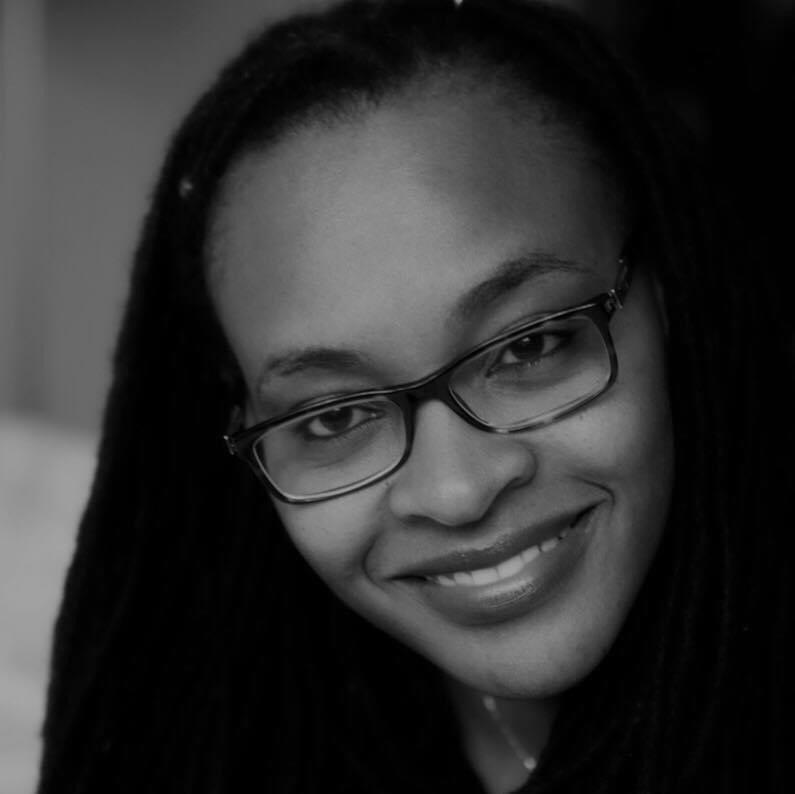
In conclusion, Ngele was gracious enough to share the practical lessons she picked from her experience working for international organisations and sitting at the decision-making table:
1. Know your stuff so that your name can be mentioned at the relevant tables even when you are not there. What you do or know must give those that have access the confidence to refer you when an opportunity arises – everyone likes to be associated with success. Work at it, be it and when you are given a chance to share an idea, make sure what you say/share is memorable and worthwhile.
2. Work on your 'shopping basket' – identify which organisations you want to work with and analyse what you have or need to get there. Does the organisation you want to work with match with your career expectations, or outlook towards life? Once you are clear about this, the rest falls into place.
3. Find a mentor who can help you build on your vision, but you must be a mentee who is willing to put in the work. Nothing comes to those who do not help themselves – therefore be a keen learner and come with a teachable mind and heart. Make a point of learning, relearn and unlearn
4. Network – they say your network is your net worth. Invest in your networks – some last a lifetime and some are for a season. Such is life and nothing to be ashamed of if you outgrow your current network – it means that the network has served its purpose and it's time to set new expectations.
5. Be open-minded and adaptable – what works in one context may not be the same for another context – be flexible enough to change strategy and take note of how you can adapt what worked without necessarily reinventing the wheel. Most decision-makers do not align well with rigid and closemindedness. Be ready to take up a challenge and learn new ways rather than be stuck with "it's always how it has been done" or "it's been done before, and it didn't work."
The two most important values she lives by are;
1. Being enough – Sometimes we work so hard to be that which we are not to please others or desperately fit in that we lose ourselves and forget who we indeed are. We are all created uniquely, and self-love starts by knowing and feeling that we are enough. When we look in the mirror, we should like the person looking back at us. Otherwise, we are living the worst betrayal of self.
2. Accountability – The Bible says to whom much is given, much will be required and thus as I use my skills and talent in the work that I do, I always strive to be accountable to myself first and to others especially those that I lead.
Ngele’s colleagues at UNDP and in the communications sector describe her as fearless, courageous, dedicated, beautiful, kind-hearted, loyal, meticulous among other adjectives.

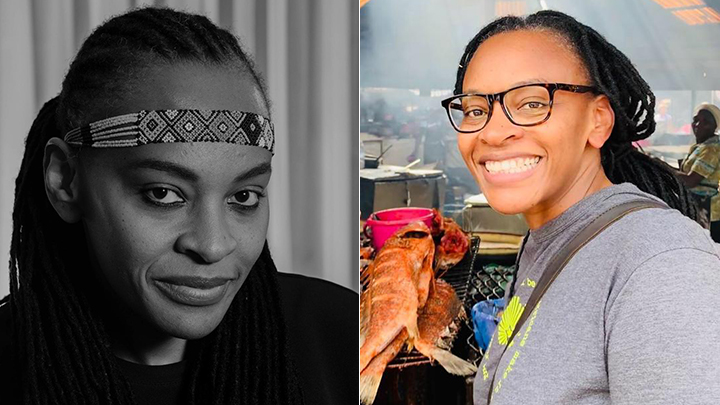
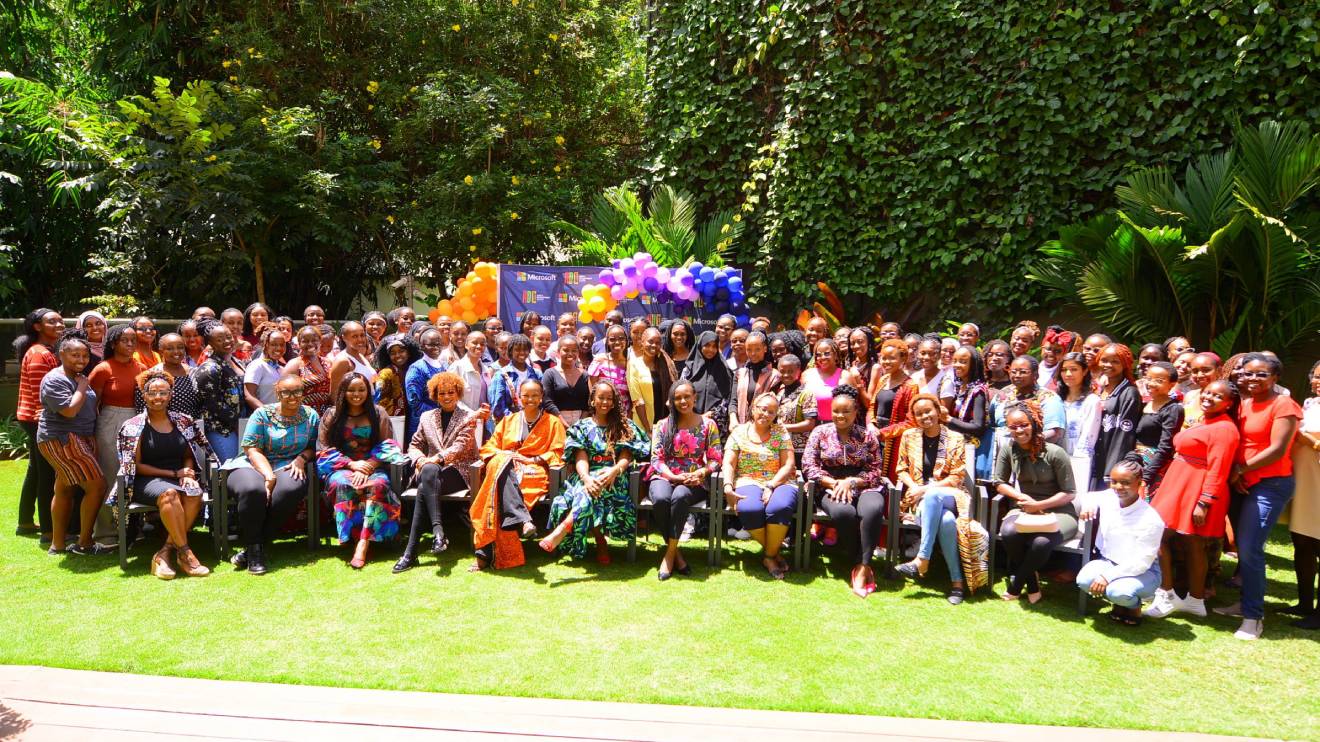
-1708960848.jpeg)
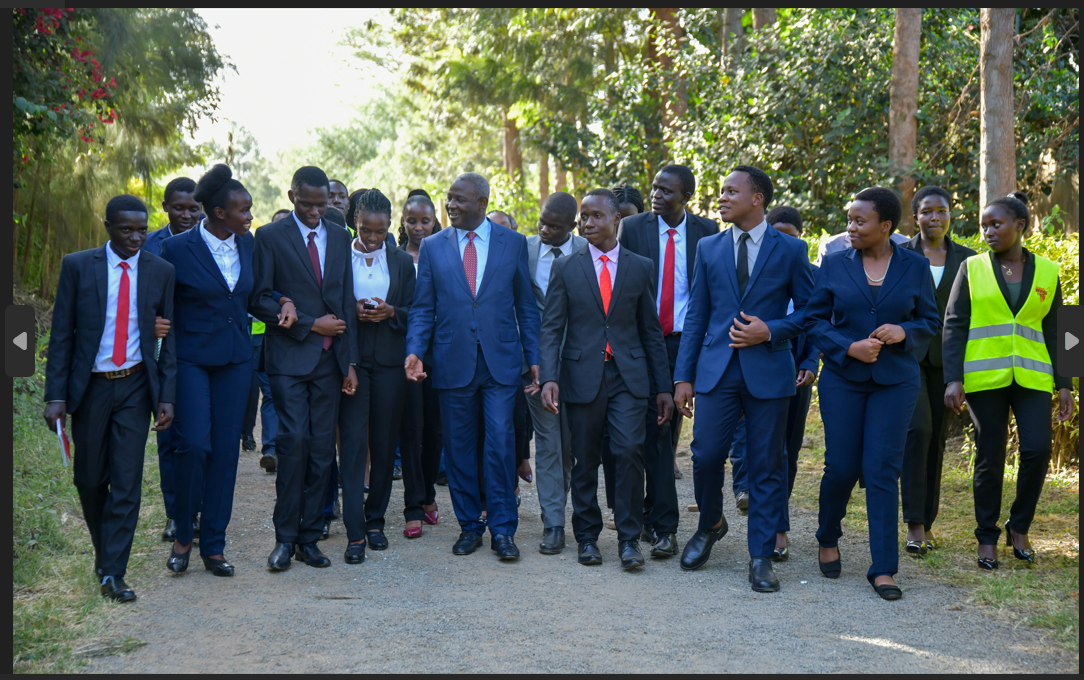
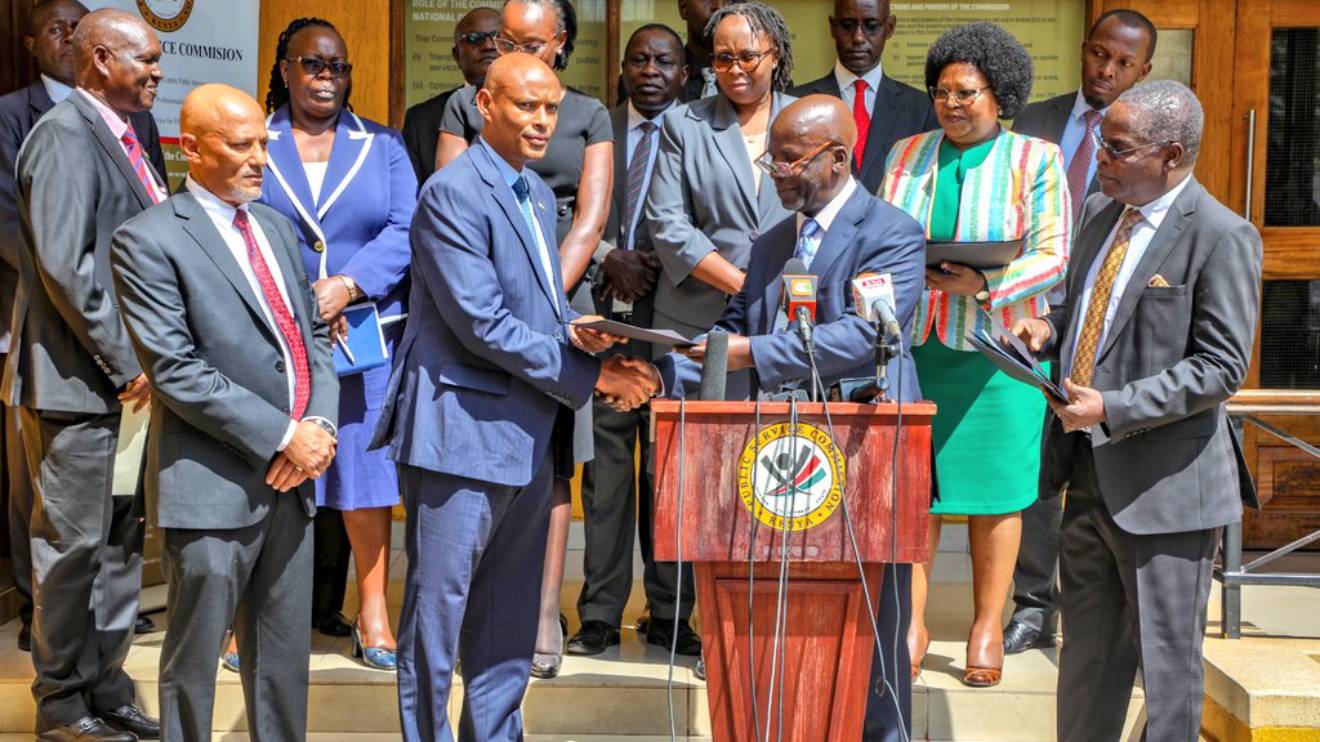
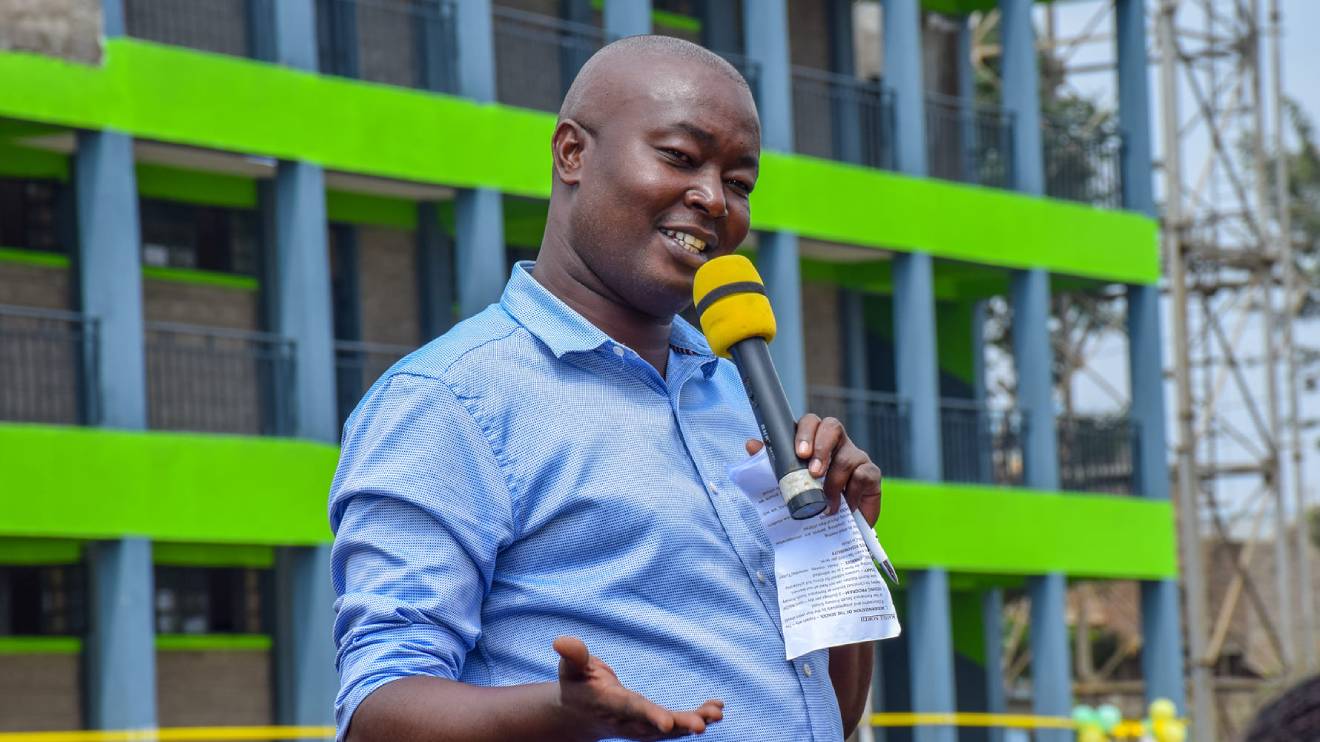
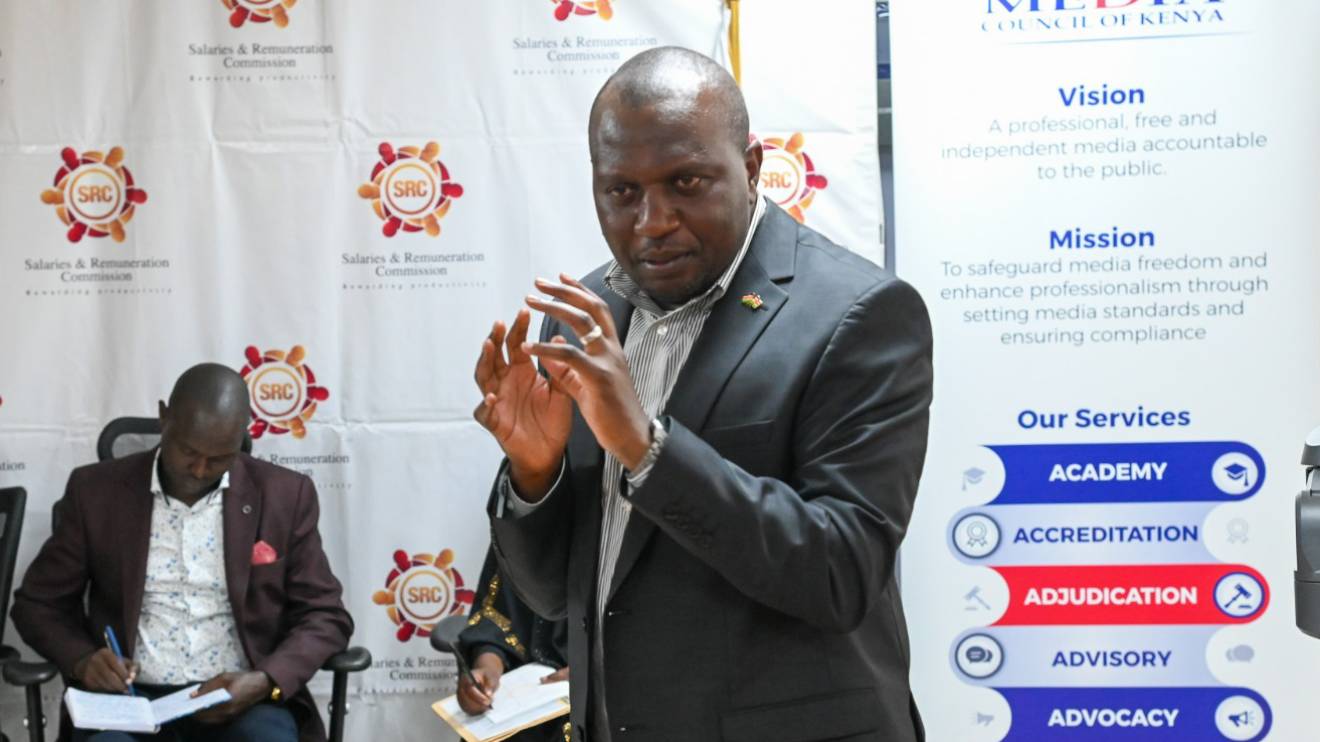

-1713803892.jpg)
